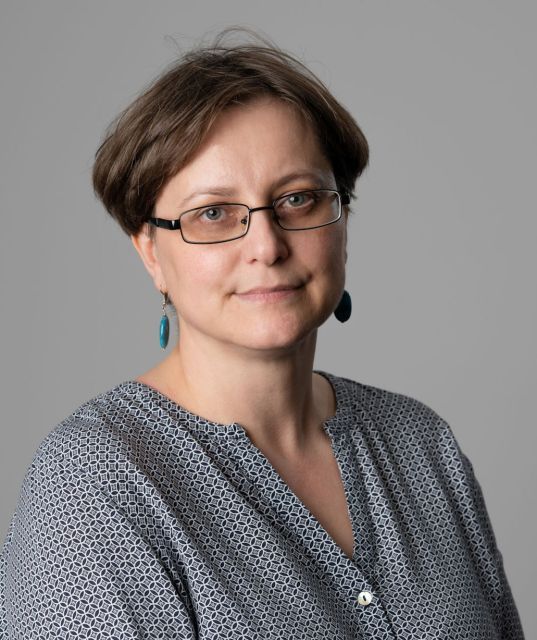Prof. Joanna Golińska-Pilarek, Chair of the NCN Committee for Regulations and Procedures, discusses the most important mechanisms of the NCN, including its call procedure, expert evaluation process, reviews and final assessments, in an article just published in “Forum Akademickie”.
 Prof. Joanna Golińska-Pilarek, photo: Piotr Szałański/NCN
Prof. Joanna Golińska-Pilarek has sat on the NCN Council since 2018. In her article, she explains selected mechanisms at play in our agency, with a special emphasis on the proposal review procedure. She also discusses some of the postulates raised by the research community with respect to changes in the operation of the NCN and debunks several public misconceptions.
Prof. Joanna Golińska-Pilarek, photo: Piotr Szałański/NCN
Prof. Joanna Golińska-Pilarek has sat on the NCN Council since 2018. In her article, she explains selected mechanisms at play in our agency, with a special emphasis on the proposal review procedure. She also discusses some of the postulates raised by the research community with respect to changes in the operation of the NCN and debunks several public misconceptions.
As for expert review, prof. Golińska-Pilarek explains how teams charged with proposal assessment are appointed and why, when resubmitted, a proposal may get a completely different score even if it has been modified in line with the suggestions of previous reviewers:
“(Expert) Teams are set up independently for each call. Of course, some experts may be appointed under (no more than three) consecutive calls. However, we do our utmost to change team composition regularly, if only to make sure our experts are a good match for the subject matter of the proposals submitted to each call. Another important reason is that we want to make sure proposals that were rejected previously are not evaluated by the same people once again. And, lastly, some experts simply refuse to join our team in successive calls. The annual statistics are really impressive: in 2022 alone, we appointed 2,100 experts and reviews were prepared by more than 11,000 external reviewers.
It is important to keep in mind that a proposal is evaluated against other proposals submitted under the same call. There is no institutional memory at play here. Experts do not have access to any proposals submitted in earlier iterations. As a matter of principle, they are also not informed whether or not the proposal is submitted for the first time. When resubmitted, the proposal is usually evaluated by different people than before and the final decision is taken by a different team. The pool of proposals against which it needs to compete is also completely different. This is why the final assessment may differ widely from the original one, and sometimes may be more negative, even if the proposal has been modified in line with the suggestions provided by reviewers in an earlier iteration of the call.”
The article also explains whether additional assessment criteria may be added and how applicants can appeal against a negative funding decision.
